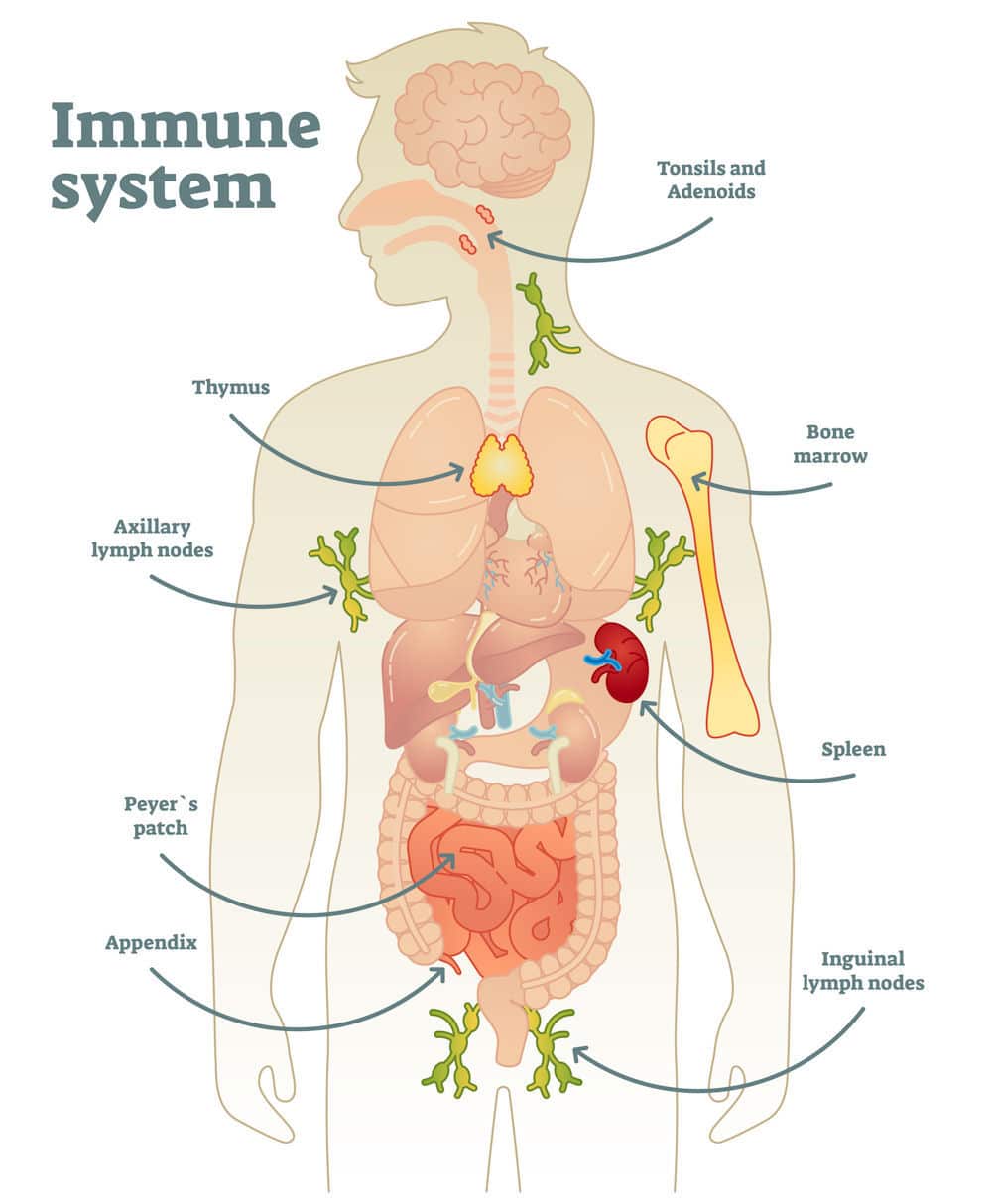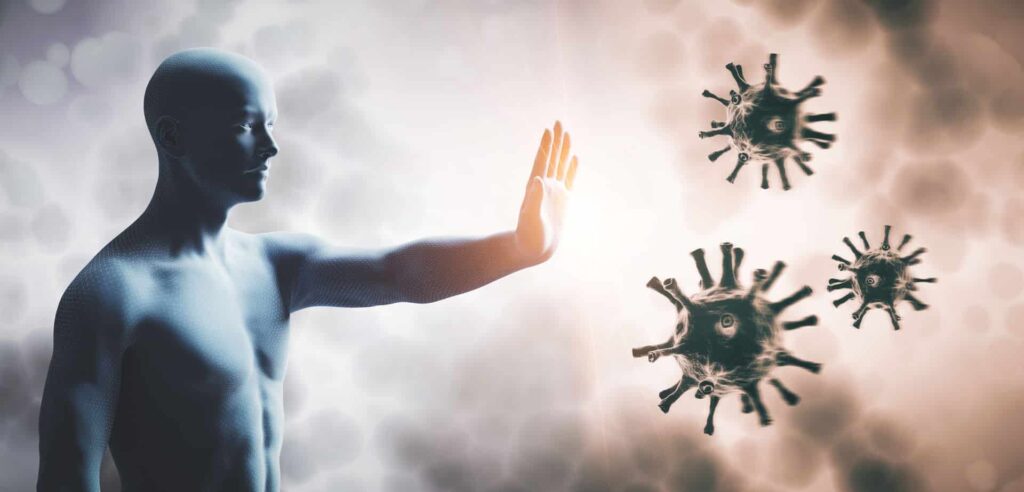Many people take vitamins every day in the hope of staying healthy. Some people take vitamin C supplements to boost their immunity. Nobody wants to engage in activities that weaken the body’s immune system.
You may unknowingly consume substances that tax your immune system. Is drinking alcohol and your immune system connected in some way? It is critical to understand how alcohol affects your body’s ability to fight disease.
At 449 Recovery in Mission Viejo, California, our rehab facility can help you or a loved one recover from the dangerous effects of alcoholism. Keep reading to learn more.
Alcohol and Your Immune System: How Are They Related?

Drinking alcohol can weaken one’s immune system. As a result, a person’s body becomes more vulnerable to infections. In reality, a person’s immune system is complex. It contains numerous cells and proteins that recognize and fight infections. The immune system and alcohol have a clear negative relationship.
Indeed, it takes time for the immune system to develop a response to a foreign invader. As a result, when a person becomes ill, the first symptoms are bothersome and noticeable. As time passes, an individual’s immune system response improves and becomes powerful enough to attack and eliminate any bacteria or viruses that are present.
Poor Response to Antibiotics
Alcohol wreaks havoc on a person’s immune system response. As a result, an individual’s body takes longer to identify and respond to infection. Therefore, symptoms may last longer and may become more intense than normal. When severe instances occur, a person’s immune system may not be powerful enough to get rid of the infection. In other words, an infection may develop into something dangerous. Most times, antibiotics help. However, certain bacteria do not respond to drugs or medical treatment. In essence, a person may not be able to recover.
Alcohol and Your Immune System: Short-term Effects
Alcohol harms a person’s immune system response. As a result, the body takes longer to detect and respond to infection. As a result, symptoms may last longer and become more severe than usual. When severe cases occur, a person’s immune system may not be strong enough to combat the infection.
In other words, an infection has the potential to become dangerous. Antibiotics usually help. Certain bacteria, however, do not respond to drugs or medical treatment. In other words, a person may be unable to recover.
Alcohol and Your Immune System: Long-term Effects
Excessive alcohol consumption causes numerous problems throughout the body. Aside from the effects on the liver and other organs, an alcoholic suffers from long-term immune problems. To put it simply, alcohol harms the immune system at both the chemical and cellular levels.
Chronic drinking, on the other hand, has ramifications throughout the body. For example, it increases the likelihood of contracting an infection that a healthy person would not catch. Long-term immune changes also include the production of inflammation, particularly in the intestines. It may eventually lead to diabetes, heart disease, and cancer.
How Much Alcohol Does it Take to Weaken the Immune System?
The National Institute on Alcohol Abuse and Alcoholism (NIAA) defines heavy drinking as more than three to four drinks per day. Although this large amount of alcohol can impair immunity, it has been demonstrated that moderate drinking can have similar effects. Finally, the best way to prevent alcohol from lowering the immune system is to stop drinking.
Alcohol and Your Immune System: The Effects of Binge Drinking:
The more a person drinks, the more his or her immune system suffers. In other words, binge drinking severely suppresses immunity. A single binge drinking session has the potential to lower a person’s immunity for the entire day.
Diseases Linked to Alcohol Misuse
To repeat, alcohol does cause the immune system to suffer. However, it can cause other conditions as well.
- High blood pressure
- Stroke
- Cardiovascular disease
- Liver problems
- Cancer
- Memory problems (Alzheimer’s and Dementia)
- Lung and kidney problems
Alcohol’s Effects on White Blood Cells
Indeed, white blood cells are critical components of the immune system. They are produced in the bone marrow of an individual and travel through the bloodstream in search of invaders that cause illness. They launch an attack after becoming infected.
One study at the University of Massachusetts Medical School looked at how alcohol affected white blood cells. It was discovered that “drunk” cells were only one-quarter as effective at fighting bacteria and viruses as “sober” cells. As a result, it was determined that alcohol makes the body susceptible to infectious diseases.
Specific Health Problems Linked to Low Immunity from Alcohol Consumption
To reiterate, alcohol impairs immune system function. Chronic drinking can cause a variety of health issues. Frequent drinking can lead to several negative health consequences. Because there is a link between alcohol and the immune system, heavy drinking only worsens the situation.
A person who abuses alcohol is more likely to develop respiratory illnesses, particularly pneumonia. In addition, conditions such as tuberculosis and common respiratory infections are more difficult to treat when alcohol is present. People who abuse alcohol are more likely to have pulmonary problems. Alcohol impairs the body’s ability to fight infections. In severe cases, pneumonia can be fatal.
The gastrointestinal system is extremely delicate in general. Essentially, it balances organisms that aid in digestion and nutrient absorption. In addition, the gut is a line of defense against disease. When alcohol is consumed, it can harm this bodily system. Alcohol is absorbed through the stomach lining and the small intestine.
When the balance is upset, the good bacteria in the gut struggle to overcome the bad bacteria. Excessive alcohol also weakens the stomach lining, allowing dangerous microorganisms to enter other parts of the body. Drinking alcohol contributes significantly to digestive system disruption. As a result, a person’s immunity is weakened due to gastrointestinal issues.
It has been discovered that drinking alcohol harms a person’s immunity. As a result, fighting infectious diseases becomes difficult. It becomes difficult to recover from an infection. HIV and hepatitis C are two of the most serious diseases that can infect a person.
HIV and Hepatitis C are typically transmitted through unprotected sex or contaminated needles. Because alcohol lowers inhibitions and judgment, a person is more likely to contract these conditions. To make matters worse, alcohol can suppress the immune system. The risk of contracting these diseases increases dramatically under these conditions. The consequences may be fatal in the end.
COVID-19 has recently become a concerning illness. This disease, like other respiratory infections, usually affects the lungs. COVID-19 has also been linked to inflammation. In essence, this can have a significant impact on the body. Daily alcohol consumption can turn a mild case of COVID-19 into a condition that necessitates hospitalization or results in death.
Unfortunately, the pandemic has left many people feeling down and anxious. As a result, people turn to alcohol to make themselves feel better. Drinking at this time may reduce immunity and make a person more vulnerable to the disease.
Ways to Support the Immune System After Drinking
The immune system can begin to improve after alcohol is removed from a person’s body. There are other ways to promote increased immunity. These include:
- Try and lower your stress levels
- Quit smoking
- Exercise regularly
- Eat a balanced diet
- Receive adequate sleep
- Maintain a healthy weight
Dealing With an Alcohol Misuse Problem
It is impossible for someone who is addicted to alcohol to stop drinking on their own. Of course, it is well known that alcohol can cause health problems, including organ failure. Is alcohol bad for your immune system?
Alcohol, according to the World Health Organization (WHO), has both short and long-term effects on every part of the body, particularly the immune system. Overall, alcohol weakens the immune system, reducing its ability to fight various diseases. Furthermore, heavy consumption increases the risk of developing ARDS, a severe COVID-19 complication.
Turn to 449 Recovery to Recover
If you or a loved one has a drinking problem, it is vital to seek help. At 449 Recovery in Mission Viejo, CA, we recognize the connection between alcohol and immune system function. Our trained staff provides support and therapies that help patients gain long-term sobriety.
Let our team steer you in the right direction of successful recovery. Our safe and supportive environment in California makes it easier to complete treatment. For more information, contact us today.

Dr. Warren Taff MD, graduated from the University of Birmingham, England School of Medicine, with a BA from Rutgers University. He then went on to UCLA School of Public Health in Los Angeles Health and Human Services and received an MPH. He also attended an internship in internal medicine, with the Veterans Administration. Dr. Taff’s residency includes General Psychiatry at USC, with elective residencies at the Royal Prince Alfred Hospital in Sydney, Australia, and Royal College of Psychiatry. Board certifications include American Board of Psychiatry and Neurology. Dr. Taff has extensive experience in both psychiatry and addiction medicine, extending from 1979 to present. He has held professional titles that include Chief of Staff and Medical Directorship in both hospitals and private sectors.






